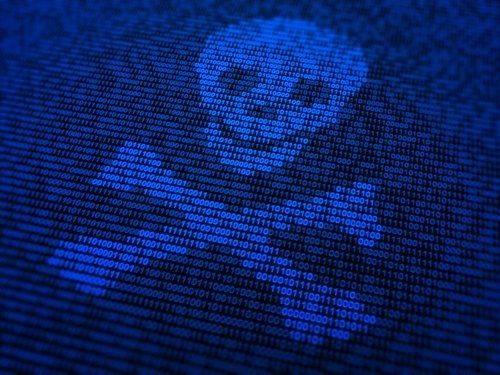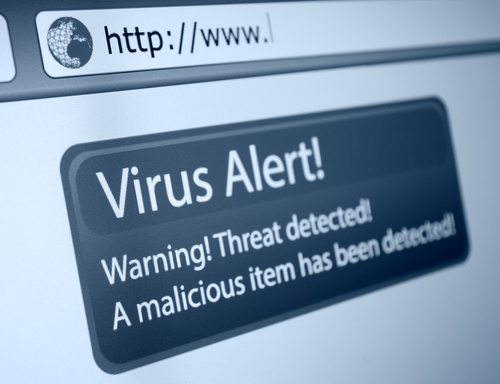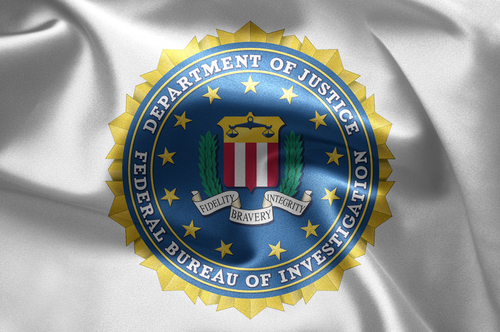July 16th, 2013

If you’re reading this, chances are you’re a smartphone user. And if you’re a smartphone user, chances are you’ve been wondering lately about how secure your phone is. The NSA has been spying on you, but perhaps more troubling is the likelihood that ordinary citizens have had access to your phone and all the data you access it with.
Adam Clark Estes, of Lifehacker, details a recently discovered, and fairly sizable, hole in Verizon’s security that allows anyone with a little desire and know-how to hack into your device and monitor your activity. After learning of the weakness in their security, Verizon was quick to patch it, but this news creates a number of questions for all smartphone users.
The team that exploited Verizon’s security says there are more holes just waiting to be breached. That goes for Verizon and nearly any other provider in the U.S. Also, for any hacker who gained access to a device before the update to security still has access.
The lesson here is that none of us are safe when using smartphones. If you haven’t been victimized yet, it’s only a matter of time. Your provider’s security clearly isn’t enough to protect your data and information, so invest in something more substantial. Bring your device to Geek Rescue to make it fully secure. Our Geeks give you a variety of options to keep any device safe from hacks, viruses and malware. Come by or call us at 918-369-4335.
July 15th, 2013
 Infographic by Via Resource
Infographic by Via Resource
The estimated 37.3 billion people targeted by phishing scams in the past year seems like an incredibly high number, until you start to realize how common and ordinary phishing is. Banners, link on social networks or instant messengers and emails containing information specific to you can all lead to phishing attacks.
This evolution stems from the average user growing more savvy. Cyber criminals understand that generic emails making wild claims about money won overseas no longer draw your curiosity. Now, social engineering tactics are used to create phishing attacks that are much harder to ignore. These attacks, called spear phishing, are highly targeted and use information mined from your online profile. Maybe you tweeted about a business trip or have emails saved from your bank or cell phone provider. Criminals use this information to put together an attack tailored to you, which greatly increases the likelihood that you’ll click their link or provide them with personal information.
Browse through the included infographic to better understand the dangers associated with phishing. These attacks are aimed at both personal and business users, so you need to be on your guard wherever you are. To ensure your safety online, consult with the professionals at Geek Rescue. They offer a variety of services designed to keep you safe from all types of cyber criminal attacks. Come by or call us at 918-369-4335.
July 15th, 2013

You’ve likely heard about the importance of protecting your devices from both computer viruses and malware, but do you know the characteristics of the two and the differences between them? Understanding how each works helps you to spot possible signs of infection. You will also have an easier time avoiding the actions that will infect your computer in the first place.
Dan Steiner, for Business2Community, writes “While there are many different types of malware, viruses are a specific strain that is distinct in the way it infects computers and its reason for doing so.” Remember in geometry when you learned that a square is a rectangle, but a rectangle isn’t always a square? In this case, a virus is a form of malware, but the term ‘malware’ doesn’t always refer to a virus. Malware could also be a trojan horse, worm, keylogger or any type of malicious software.
A virus is a specific term for software that impairs a computer by infecting files. Some other simply minor annoyances while more complex viruses are capable of rendering your machine inoperable or stealing your data.
Viruses are used less because they are “noisy”. This means the warning signs that your machine has a virus are easy to detect. Other types of malware are able to operate in the background without harming noticeably harming your system’s functionality and many are even able to stay undetected by security software. This way, the malware is able to secretly steal your data without you ever knowing anything is wrong.
Whether you are experiencing a minor virus annoyance or worried about malware stealing your data, bring your computer to Geek Rescue for a full diagnostic and cleaning. Geek Rescue restore’s your device to a healthy state and helps to protect it from future attacks. Come by or call us at 918-369-4335.
July 15th, 2013

To protect yourself from viruses, malware and phishing attacks, you need a currently updated antivirus program installed on the device you’re using to browse the web. By now, this is a well-known truth. Relying on the presence of antivirus software alone, however, is no longer enough to keep you and your computer safe.
Kaspersky Lab reports that there is a new, unique form of malware detected more than once every second. That equates to about 200-thousand new forms of malware being created each day. Even regular updates to your antivirus software can’t keep up. Antivirus is still necessary to catch the majority of infection attempts you’ll run into during a normal web browsing excursion, but you need extra security to protect you from the rest.
For businesses or homes, users are often their own worst enemy when it comes to fighting viruses and malware. In his article for Computer Weekly, Warwick Ashford explains that “securing computers remains easier than securing users.” That’s because infection attempts use manipulative language to get users to open emails or click objects their computer knows they shouldn’t. Social media, when not protected properly, also gives cyber criminals more than enough information to goad you into a phishing attack or infect you with malware. In many ways, the best way to protect yourself online is to trust your spam filter and security software and practice safe, disciplined surfing.
Using a cloud infrastructure with real-time updates is one way to further protect your computer. Geek Rescue knows how to keep you protected, even against the increasingly intelligent and effective threats out there. Contact Geek Rescue at 918-369-4335 now, before your computer is infected, to explore your options and stay safe from attack.
July 12th, 2013

To many people, being invisible and undetectable on the internet is only necessary for criminals who are partaking in illegal activities. Those people overlook how easy it is for websites and other users to monitor your activity and steal your information. Fortunately, there are plenty of ways to stay safe by going invisible. Chris Gayomali touched on a handful of your options in his recent article for The Week.
Masking your IP address makes it more difficult to track your online activity, which is a particularly valuable skill considering the recent developments with the NSA. Your IP, or internet protocol, address is a set of numbers assigned to your device. Computers, phones, even printers, all have an IP address. To mask your IP, your connection to the internet is rerouted through other machines, which makes it hard to pin down where you actually are. There are programs readily available for download to help with this task, although some websites may not support your masked IP experience. Geek Rescue will outfit your computer with top-of-the-line software to mask your IP and keep you safer online.
Have you ever heard of a VPN? It stands for Virtual Private Network and they supply encrypted tunnels to keep your online activity secure. Again, there are plenty of downloadable tools to help you set-up your own VPN. They come in handy when using free WiFi, which are by definition unsecure networks and attract shady characters. To set up your own VPN, call Geek Rescue or stop by. They’ll have you surfing securely in no time.
You may not be using your email for any illegal activity, but that doesn’t mean you want anyone to have access to your message content. Addresses, phone numbers, bank account numbers and social security numbers are routinely included in emails. Encryption services are readily available and many don’t even require registration. Geek Rescue has the email solutions you need to ensure that no outside sources have access to your private messages.
Google, Microsoft and Yahoo have all been accused of sending information to the government. What do you do if you don’t records of your searches forward to official agencies? A little research can help you discover a new search engine that promises not to track or store records of your searches. Predictably, traffic on these search engines has risen steadily in the past few weeks.
Finally, if the search giants’ sites aren’t safe, neither are their chat clients. Encrypted chat services are often as easy as adding a plug-in to your browser. It may not be quite as convenient as Gchat, but you can be sure that no one else is reading your conversation.
For more information on how to surf safely and keep your computer and data private and secure, talk to the experts at Geek Rescue today. Give us a call at 918-369-4335.
July 12th, 2013

The FBI virus has been making plenty of headlines in the past few weeks. Since it’s capable of locking down your computer and attempts to extort money from its victims, there’s good reason for the media frenzy.
The virus, part of a classification called ransomware, uses an official looking FBI seal to make victims believe their computer has been locked due to illegal activity. A ransom is asked for to unlock the computer and keep the victim out of prison. A giveaway that the virus is a tool of scam artists is revealed, however, when the only acceptable payment method is an untraceable, prepaid credit card.
It’s frightening to think criminals from an ocean away can hijack your personal computer and demand money to let it go. Recent reports of FBI virus sightings reveal even more sinister characteristics though. As reported by an NBC affiliate, one teenager in a Chicago suburb says the virus first showed images of child pornography on her screen, then used her webcam to take her picture before locking down her computer and demanding $450.
Similar reports are cropping up all over the US. SILive has a story of an FBI virus victim in New York. WKMG in Orlando reported another case of the FBI virus in Florida, but this one had a slight twist. After the victim’s computer was locked down, a number listed as belonging to the Department of Justice appeared and connected the man to an accented voice claiming to be able to fix his computer for a fee of $189.95.
Officials warn that the virus likely infects your computer when you click on an email from an unknown sender or visit a harmful website. It then uses fear-based tactics to attempt to steal your money or personal information. The FBI virus is just like any other virus, however. It can be cleaned and your computer can be restored. The FBI, that’s the real FBI, recommends seeking help from a professional so you can be sure the virus is gone. Geek Rescue specializes in the identification and eradication of computer viruses. They save you from viruses like the FBI virus and safeguard your computer with the latest antivirus software to keep you safe. Call a Geek Rescue at 918-369-4335.
















